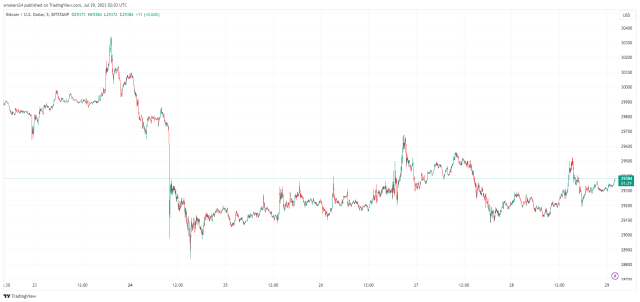In order to address growing concerns about money laundering and terrorist financing related to cryptocurrencies, the Peruvian Presidency has issued a new decree. The decree mandates that all cryptocurrency exchanges operating within the country must comply with anti-money laundering (AML) regulations. This development is a significant step in the Peruvian government’s efforts to regulate the cryptocurrency ecosystem and protect its financial system from illicit activities.
Mandatory Disclosure of Crypto Holdings to Service Providers
According to the decree, virtual asset service providers, including individuals and companies operating within Peru, are required to report information to the Financial Intelligence Unit (UIF-Peru). The UIF-Peru is responsible for receiving, analyzing and transmitting information to detect money laundering and terrorist financing activities.
The definition of “Virtual Assets Service Providers” includes entities engaged in various activities related to cryptocurrency such as exchanging virtual assets for fiat or legal tender currency, exchanging various types of virtual assets, transferring virtual assets, custody and administration of virtual assets providing, and offering financial services related to the sale or offering of virtual assets.
One of the main objectives of this decree is to ensure that cryptocurrency exchanges in Peru comply with the recommendations set forth by the Financial Action Task Force (FATF). Particular emphasis is placed on the FATF’s “travel rule”, which requires exchanges to implement Know Your Customer (KYC) standards. By collecting and sharing customer data, exchanges aim to improve transparency and prevent illicit activities within the crypto space.
Although the decree is now in effect, the Financial Intelligence Unit is expected to release more specific guidelines in the coming days regarding the prevention of money laundering and terrorist financing for cryptocurrency exchanges in Peru. These guidelines are likely to further clarify the obligations and responsibilities of virtual asset service providers operating within the Andean country.
New Regulations Not Without Controversy
Despite the government’s intention to address the risks associated with cryptocurrencies, the new decree was not without controversy. The Blockchain & DLT Association of Peru (ABPE), a community made up of professionals and enthusiasts who support the adoption of bitcoin and blockchain technology, expressed dissatisfaction. They claim that the proposal was drafted without their participation and consultation with the Peruvian public at large. In response to this exclusion, the ABPE is urging Congress to initiate a dialogue with representatives of the cryptocurrency ecosystem to ensure that all viewpoints are considered in the regulatory process.

As the use of cryptocurrencies continues to gain traction around the world, many countries are grappling with the challenges of their decentralized and fictitious nature. Peru’s decision to tighten regulations and include cryptocurrency exchanges under AML guidelines reflects a global trend of governments trying to strike a balance between fostering innovation and protecting their financial systems.
It remains to be seen how these new regulations will shape the cryptocurrency landscape in Peru and how industry stakeholders will respond to the government’s call for increased compliance. So far, the decree represents a significant step forward in Peru’s efforts to fight financial crimes and protect its economy from the potential risks associated with cryptocurrencies.
Featured image from iStock.com, chart from Trade view





